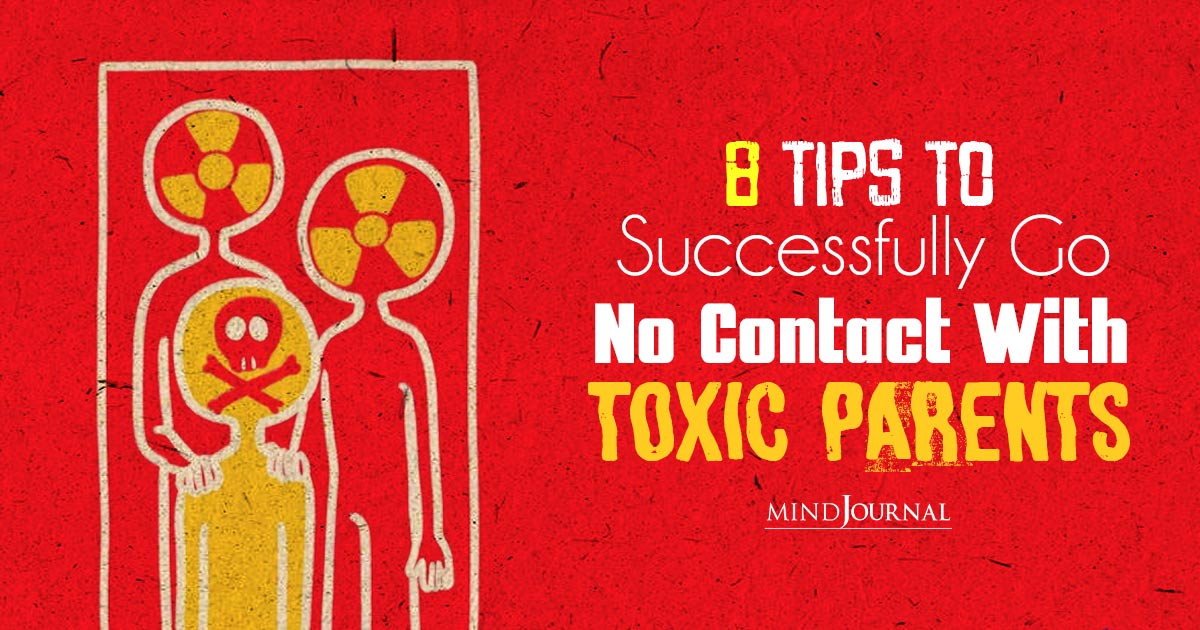In real life, is there an unfollow button for people, especially parents? If you are going no contact with parents, below are 8 tips that could help you make up your mind.
The hardest thing you’ll ever do is close the door on your past. It will also be the most empowering.
You don’t just wake up one day and decide to cut your mom or dad out of your life – it’s a decision that comes after years of trying everything to preserve the relationship.
But something in you finally snaps – you see that the cost of this connection is too high, and maybe for the first time in your life, you choose yourself.
Related: How People Choose To Go No Contact With A Family Member
What Does “Going No Contact With Parents” Mean?
Before anything else, let me clear this up. “No contact” is not just a silent treatment. Staying mute is abusive, and it’s done in order to control people as punishment by narcissists. They use this tactic to hurt others, and show them that their feelings are invalid.

Many reasons can cause someone to go “no contact with parents”, but usually it’s because their dysfunctional behavior is demanding too much from you. Mentally, emotionally, and physically – you just can’t pay this price anymore.
Society judges harshly those who estrange themselves from their family members. If you’re on a first date, for example, and say that you don’t speak with your family members, it’s seen as a major red flag (and to a certain extent – it could be).
But things need context, and there’s definitely no room for an explanation like that during a first date small talk.
So, Here Are 8 Tips for Going No Contact With Your Toxic Parents

1. Set Your Boundaries And Learn To Stick To Them
State what triggers or signs indicate trouble and ask them respectfully to be mindful when they surface in conversation with each other — if they refuse or if trouble starts brewing anyway despite your request then disengage immediately and leave the conversation.
Be firm – don’t allow any attempts of being drawn back into these arguments with them.
2. Stop Trying To Please Them
You don’t need their approval or happiness; you need your own in order to move forward. Do what makes you genuinely happy, not what you think will make them happy.
3. Don’t Engage In Arguments
Arguing or reasoning with a toxic parent is like beating a dead horse. It’s been beaten so many times that there’s no momentum left in it – it’s just not going anywhere anymore.
They’re the way they are and they’re set in their ways, no matter how good of points you have, they won’t really change their mind about much.
This can be very exhausting for most – when arguing with a narcissist, you usually feel worse at the end of it than before (and not just because you didn’t “win” the argument).
4. Protect Yourself From Them
Your toxic mother or father won’t change overnight due to them being toxic, and they might even blame everything on you — but limit how much they can interfere with your life and emotions.
If the abuse continues despite your best efforts to avoid arguments and keep conversations civil and respectful by setting boundaries – it may be time for a relationship cut off.
5. Let Go Of The Guilt
Going no contacts with parents is a big decision. Doubts and guilt will always follow it. But sometimes that’s how life works. You have to prioritize your own health and well-being above all else.
It’s never your responsibility to fix or tolerate a harmful dynamic. So don’t feel guilty for taking this step towards healing yourself.
6. Seek Therapy If Needed – It’ll Help
One of the good tips for going no contact with parents, is that therapist can aid you in the discovery of these thoughts and provide solutions to help you maneuver around them. This will allow you to go about your day without these thoughts constantly getting in your way.
The therapy is essential for maintaining or improving your relationship, but don’t expect too much from it either.
7. You Don’t Need to Change; They Do
Only they can make the change happen, you can suggest therapy to them, but accept that there is only so much you can do.
9. Take Charge And Control
You are the conductor of your own feelings when it comes to your relationship with your parents, right now and in the future.
You can choose to be present during holidays or not and you can choose whether or not you want to be there for your parents when they need you.
No matter who is causing harm to you — just know that they do not love you. You must advocate for yourself because no one else will.
Related: Truth About Silent Treatment: Why Won’t He Say What Is Wrong?
Share your thoughts on the tips for going no contact with parents who hurt your well-being.











Leave a Reply